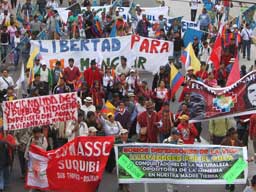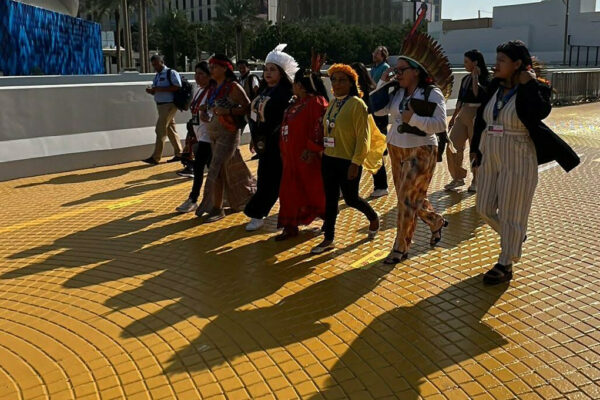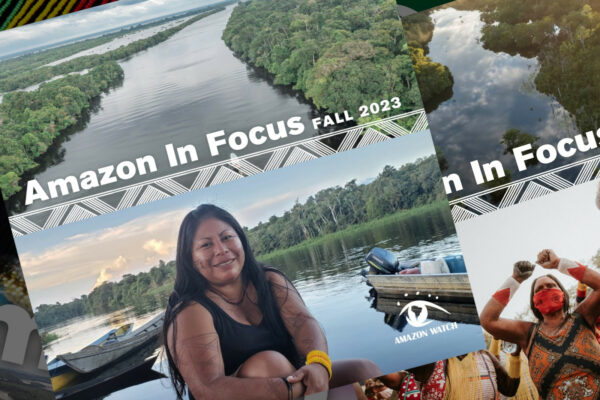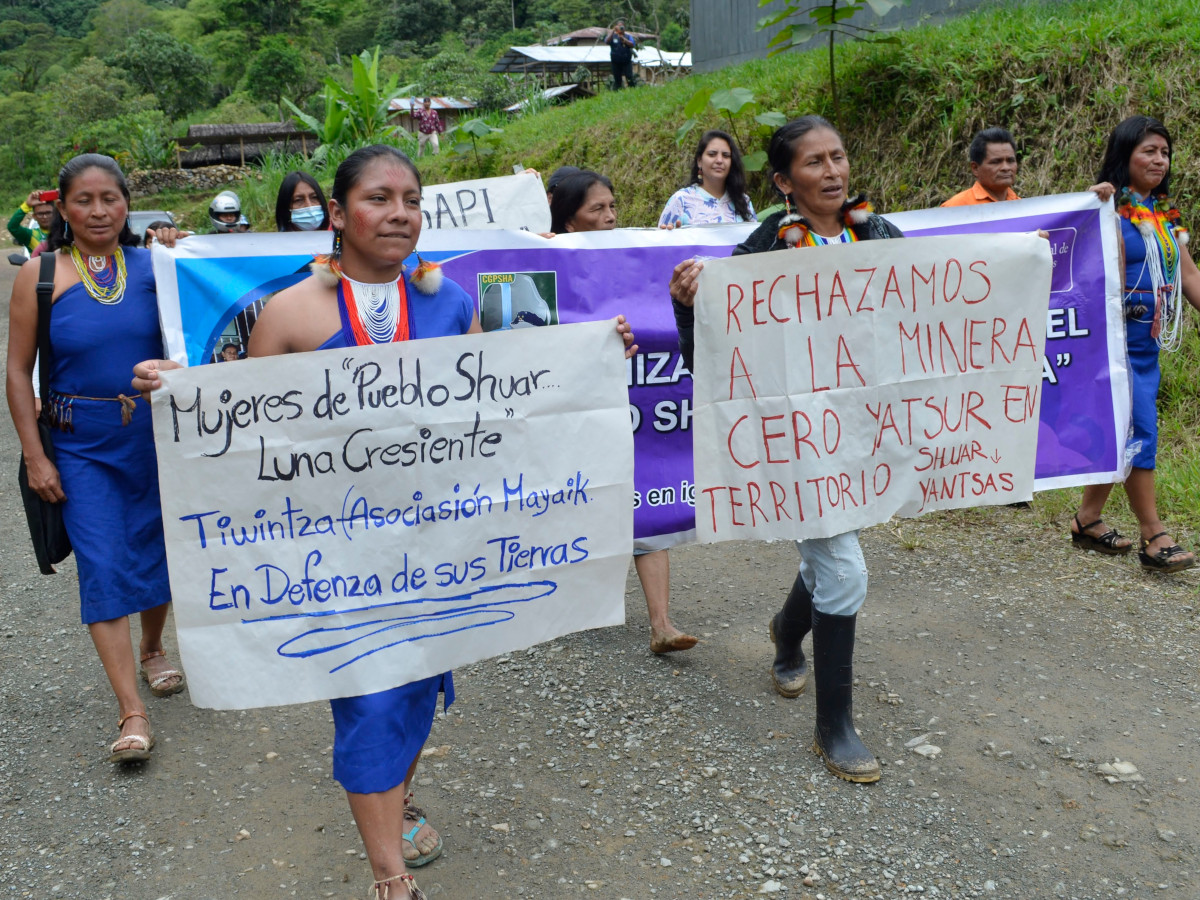Six years after working to elect Ecuador’s President Rafael Correa, the country’s indigenous population is now taking to the streets against the very government they helped bring to office.
Hundreds of people from Ecuador’s Andean and Amazonian indigenous groups marched into Quito today, after a 14-day trek across the country. Dressed in colorful traditional clothing, they are protesting against the government’s large-scale mining projects, which they say go against Mr. Correa’s electoral promise to protect the rights of nature, and could impact their access to clean water.
“What we’re asking is for the government to honor our democracy,” Humberto Cholango, head of the Confederation of Indigenous Nationalities of Ecuador (CONAIE), the largest indigenous group, told foreign reporters on March 21, the eve of the protesters’ arrival into Quito.
“We ask the president to stand by the promises he made five years ago,” Mr. Cholango says.
Rights of Mother Nature
Correa took office in January 2007 with a progressive platform that gained widespread support by indigenous groups. This was thanks in large part to proposals such as the inclusion of the “Rights of Mother Nature” in the country’s new constitution, approved in 2008. Ecuador was the first country to approve such legislation, which stipulates that citizens have rights to healthy and ecologically balanced environments, and have a duty to respect nature.
While the president remains hugely popular among large swathes of the population for his social projects aimed at the poor and the disabled, his relationship with indigenous people has been far from rosy, most recently due to his desire to build a large scale mining industry on biodiverse, indigenous land.
“We can’t be beggars sitting on a sack of gold,” said Correa earlier this month, referring to the country’s need to tap its natural resources. The government hopes to attract $3 billion in mining investments by next year – a significant contribution to its economy. “It is a lie that good mining destroys water,” Correa said.
Motivation to mobilize
Correa’s administration says indigenous organizations are just trying to destabilize the government ahead of the February 2013 presidential elections.
But according to indigenous leaders, the timing is connected to the government’s negotiation of a mining contract with the Chinese-owned company Ecuacorriente. The contract was signed earlier this month and is to be carried out in the southern province of Zamora Chinchipe with a $1.4 billion investment. Another multi-billion dollar contract for a silver mine is expected to be signed with a Canadian company in coming months.
The open-pit copper project would be the first of its kind in Ecuador, a country that relies on oil exploitation but is new to large-scale mining.
“The government has caused this mobilization,” says Salvador Quishpe, one of the march organizers, and governor of Zamora Chinchipe.
Mr. Quishpe says the government did not consult with local populations before approving the project – something many claim is required by the constitution. Quishpe says there are 227 water sources inside the mining project’s zone, and locals are worried they will all be contaminated through the extraction process.
Yet, in the lead up to Ecuador’s presidential elections next year, the march – and the government’s reaction to it – is an indicator of the country’s political pulse. Correa is expected to stand, many expect successfully, for his second re-election. But doing so without the support of Ecuador’s powerful indigenous organizations and the country’s political left might prove harder than expected. Ecuador’s indigenous population represents 7 percent of the country’s total population, according to the latest census.
“In this country, it is unusual to have such large mobilizations just before the opening of an electoral campaign,” says Franklin Ramírez, a political scientist at Ecuador’s branch of the Latin American Faculty of Social Sciences (FLACSO).
Taking protests to “the next level”
Protesters, who marched from the north and the south of Ecuador to convene in Quito today, are expected to meet with the president of Ecuador’s legislature, Fernando Cordero, and minister of political coordination, Betty Tola, to voice their concerns.
The government has called for its own demonstration in support of Correa, to take place downtown today as well. Police have deployed across Quito as a preventative measure.
Speaking before the march, indigenous leaders said they are willing to “take the protests to the next level,” if they are provoked. They did not explicitly threaten violence, but indigenous-led organizations have turned to violent tactics in the past – something that contributed to the resignation of two former presidents, one as recent as 2000.














